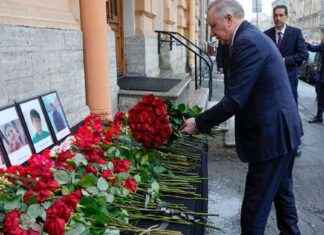Jean-Jacques Annaud, academy award-winning filmmaker behind films like The name of the rose, Seven years in Tibet, which took 10 years looking for a story to turn it into a series. Why? “Today, television is a place of freedom which is not found in the film. The so-called blockbusters to dominate the world scene, and each time there is less space for films with content,” says to THE WORLD, the director, who finally found the material for his television debut in The truth about the case of Harry Quebert, a bestseller published in 2012 by the swiss writer Joël Dicker with only 27 years.
to sum up, the book and the miniseries of the same name -available on demand at Movistar+ and with a chapter release #0 today and every Friday at 22.00 hours – is a thriller about the disappearance in 1975 of the 15-year-old Nola Kellergan in a small town in New Hampshire (USA). The main suspect is the aforementioned Harry Quebert, the famous writer who, already sexagenarian, is accused of the murder when, in 2008, appears buried in his garden the corpse of the girl, who decades ago had a relationship.
To his 52 years, the “irresistible” -a word of Annaud – Patrick Dempsey, during 11 seasons in the doctor Clump of Grey’s Anatomy, plays Quebert at both times, being six hours of make-up responsible for the larger version. “It is always difficult to make the decision to leave a series as well, but for me there was nothing left to explore in the character and was ready for the next challenge,” says the actor on his departure from the drama doctor in 2015. Since then he has continued with his passion as a racing driver, has produced a documentary and a movie, and has recorded this mini-series: a challenge for interpretation both by the controversial love story which stars as by the method Annaud.
Jean-Jacques Annaud (l.), in the shoot. /MOVISTAR +
“I Decided to work with the first shot,” says the director, who in 81 days is aired the 10 chapters of the miniseries. “I was preparing the scene and took the test, normally with five cameras arranged at different angles. And most of the times not needed a second take,” he says.
“I Wanted to capture the emotions of the actors. The first day is scared, but gives it a unique energy,” adds Annaud, who controlled all the development of the miniseries: from the initial draft, which financed the MGM, up to post-production. Dempsey, for his part, stresses the spontaneity of the result: “it Was an incredible experience. Coming from Grey’s Anatomy, where everything was done line by line, this flowed a lot more freely. You had to be prepared and understand the material to be able to go any direction the scene is going to take you”.
In regards to the romance between a genius treintañero in crisis and a girl under age, in the midst of the era of the #MeToo, Annaud says, “I’m Not worried at all because it is a personal story. When I was 11 or 12 years old I fell in love with my literature teacher. It was very sexy, had 28 years and I must say that we had a passionate romance. She taught me Latin and Greek, and many other things. And it was my initiative”. The French filmmaker continues: “In some places is tending to a puritanism hypocrite. The mediterranean countries have a more open approach to love and desire”. And in regards to the miniseries, which compares with his film The lover, says resolved: “The danger is to be politically correct. I think that it is okay to create some controversy. But in this case I have to point out that the initiative is of the girl: she is the engine of romance, who moves the story. And it is not a sexual relationship: it is love.”
Dempsey, more restrained, concludes: “This issue was raised a lot while we were making, what kind of person is Harry Quebert, and it was very important not to turn this into a predator in the sense that it simply inspires in her and she becomes his muse. Because you do not know what happened and I think that is the question that remains for the viewer: what was actually your relationship”.
According to the criteria of
Learn more






